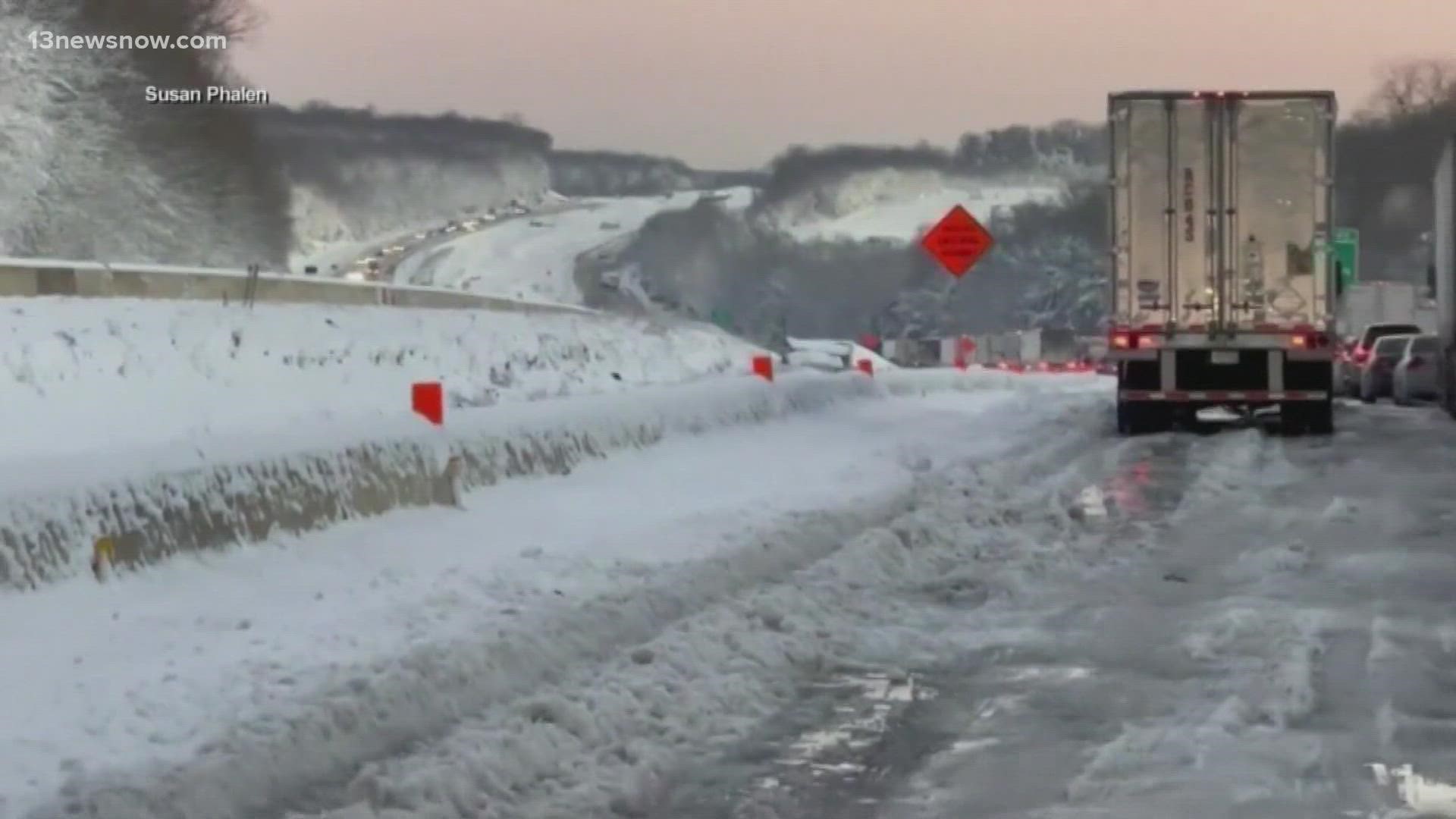NORFOLK, Va. — Hours after being trapped, there are no more stranded drivers on Interstate 95 in Virginia Tuesday night.
The standstill traffic nightmare near Fredericksburg lasted for over 24 hours, and the gridlock stretched about 40 miles. It all started when six tractor-trailers crashed around noon on Monday in the icy and snowy weather.
Some of the people stuck were from right here in Hampton Roads.
"There's people outside and in their cars. They're all just kind of standing around. There's semis trying to hand out food, but overall, we're just...here," Talut Carter told 13News Now Tuesday afternoon.
Now, the Virginia Department of Transportation (VDOT) and other agencies have gotten that stretch of the interstate cleared and people are finally getting home.
For every hour that you’re stranded, there are other people, whether it’s VDOT or the local fire department or the local police department or local EMS, they are working to get you free and traffic moving as soon as possible," says Jim Ingledue with Virginia Beach Fire and EMS.
No one wants to see a gridlock like this again, especially in winter weather. But, it could happen and preparing yourself and your car begins before you even leave the house.
Ingledue said you need to check your tires, oil, windshield wiper fluid and car batteries before you go.
"You gotta make sure your vehicle is in really good shape," he said.
Ingledue also said it's a great idea to let someone know when and where you’re going and what route you’re taking.
Jason Elmore with Virginia Emergency Management said you need to make sure you always have essentials in your car like water, batteries, flashlights, blankets and phone chargers.
"Before you travel, make sure you have a full tank of gas. That will help if you break down."
Ingledue said you can’t forget warm clothes.
"You need to make sure that you’re adequately dressed to begin with," he said. "We lose most of our body heat through our heads so you need to have some sort of hat."
Once you’re out on the road, if you get stranded, Ingledue and Elmore said the most important thing for your safety is to not walk away from your car.
Not only is your car your best option for shelter on a long, empty stretch of interstate, but it can also cause problems for others if you abandon it.
"If traffic does start to be moved and be cleared, now you don’t want your car to be another obstacle," says Ingledue.
They both said it’s a good idea to turn the engine and your heat on and off periodically instead of just leaving it running and risking running out of gas.
"Having your car on and then blasting the heat to get the heat in, keeping the windows up and then cutting it off to kind of conserve that gas," says Elmore.
They both said the biggest mistakes people make in these situations are not being prepared in the first place to travel in those conditions and even getting on the road at all.
"Instead of always planning for what you want to happen, plan for what may happen," said Ingledue.

